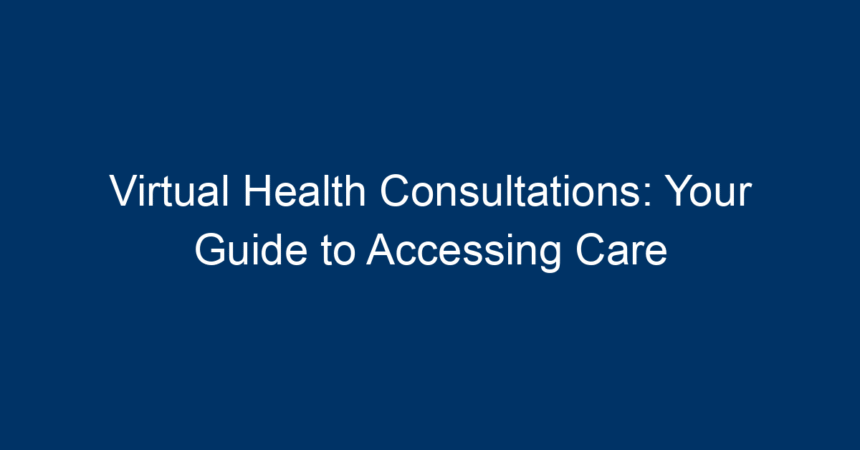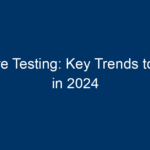In today’s fast-paced world, the way we access healthcare has undergone a significant transformation. Virtual health consultations have emerged as a powerful tool, offering patients the convenience of receiving medical advice from the comfort of their homes. But what exactly are virtual health consultations? How do they work, and what benefits do they provide? In this comprehensive guide, we will explore everything you need to know about virtual health consultations, empowering you to make informed decisions about your healthcare.
What are Virtual Health Consultations?
Virtual health consultations refer to remote medical appointments that occur via video conferencing, phone calls, or messaging. This technology enables patients to communicate with healthcare providers without the need for an in-person visit. Whether it’s a routine check-up or a follow-up on a chronic condition, virtual consultations are designed to enhance patient care while reducing the barriers of traditional healthcare delivery.
The Rise of Telemedicine
The increasing demand for telemedicine reflects a growing trend in healthcare. Factors contributing to this rise include:
- Convenience: Patients can schedule appointments around their busy lives.
- Accessibility: Individuals in remote areas can access high-quality healthcare services.
- Safety: Especially relevant during the COVID-19 pandemic, virtual consultations minimize the risk of exposure to contagious diseases.
Benefits of Virtual Health Consultations
1. Convenience and Flexibility
One of the primary advantages of virtual health consultations is the convenience they offer. Patients can attend appointments from their homes, eliminating the need for travel, waiting rooms, and time off work. This flexibility allows for quicker access to medical advice and treatment.
2. Cost-Effectiveness
Virtual health consultations are often more affordable than in-person visits. Many insurance companies cover telemedicine services, and the cost of travel and time lost in transit is eliminated. This makes healthcare more financially accessible for many patients.
3. Improved Access to Specialists
Virtual health consultations provide access to healthcare providers who may not be available locally. Whether it’s a rare condition requiring a specialist or a second opinion on a diagnosis, telemedicine facilitates consultations with experts nationwide, breaking down geographical barriers.
4. Enhanced Patient Engagement
Through virtual consultations, patients often feel more comfortable discussing their health issues. The relaxed environment at home can promote open communication, fostering a stronger patient-provider relationship. This enhanced engagement can lead to better health outcomes and increased satisfaction with care.
5. Efficient Follow-Up Care
For patients with chronic conditions, regular follow-up consultations are crucial. Virtual health consultations simplify the follow-up process, allowing providers to monitor conditions with greater ease and ensure that patients adhere to their treatment plans.
How to Prepare for a Virtual Health Consultation
1. Choose the Right Platform
Before your virtual health consultation, confirm the platform your healthcare provider uses. Common platforms include Zoom, Doxy.me, and dedicated telemedicine apps. Ensure you have the necessary software installed and familiarize yourself with its features.
2. Gather Necessary Information
Prepare any relevant medical history, medication lists, and any recent test results. This information will help your healthcare provider understand your needs better and provide informed recommendations.
3. Create a Suitable Environment
Find a quiet, well-lit space for your consultation. This will help minimize distractions and ensure your provider can see and hear you clearly. A stable internet connection is also essential for a smooth experience.
4. Prepare Questions
Make a list of questions or concerns you want to discuss during the consultation. This will help you stay focused and ensure that all your health issues are addressed.
Common Uses of Virtual Health Consultations
1. Routine Check-Ups
Many healthcare providers offer routine check-ups through virtual consultations. These appointments can help monitor ongoing health conditions, review medications, and assess overall health.
2. Mental Health Services
Mental health has become a focal point in virtual healthcare. Therapists and counselors can provide support through video calls, offering sessions for anxiety, depression, or stress-related issues, all from the comfort of one’s home.
3. Chronic Disease Management
For patients with chronic diseases such as diabetes or hypertension, virtual health consultations allow for consistent monitoring and tailored management without frequent in-person visits.
4. Acute Care Needs
Getting quick medical advice for acute ailments, such as a cold or minor injuries, can often be resolved via a virtual consultation, saving time and potential hassle.
5. Medication Management
Virtual consultations facilitate medication reviews and adjustments. Patients can discuss side effects and efficacy with their providers, allowing for timely interventions if necessary.
Challenges of Virtual Health Consultations
1. Technology Barriers
Not everyone has access to the required technology for virtual health consultations, particularly in underserved populations. This can create disparities in access to care.
2. Privacy Concerns
Ensuring confidentiality in virtual consultations can be challenging. Both patients and providers must be aware of privacy settings and choose secure platforms to protect sensitive information.
3. Limitations of Physical Examination
Although virtual health consultations provide many benefits, they cannot fully replace in-person examinations. Certain conditions may require a physical exam, and providers must assess when an in-person visit is necessary.
Choosing the Right Provider for Virtual Health Consultations
When considering virtual health consultations, selecting the right provider is critical. Here are some factors to consider:
1. Credentials and Experience
Review the provider’s credentials and experience, especially if you have specific health concerns. Ensure they are licensed to practice in your state.
2. Reviews and Recommendations
Look for reviews or ask for recommendations from friends and family. This can help you gauge the quality of care and patient satisfaction.
3. Technology Compatibility
Choose a provider whose virtual consultation platform is user-friendly and compatible with your devices. Technical support should also be readily available if needed.
4. Accessibility
Consider the provider’s availability. Can you easily schedule an appointment that fits your schedule? Do they offer after-hours consultations in case of emergencies?
Conclusion: Embracing the Future of Healthcare
Virtual health consultations have revolutionized the way we access healthcare, offering unparalleled convenience, flexibility, and accessibility. As technology continues to evolve, so too will the possibilities of remote healthcare. By embracing telemedicine, you can enhance your health management and ensure you receive the care you need, right when you need it.
Actionable Insights
-
Explore Virtual Options: Check with your healthcare provider about the availability of virtual health consultations.
-
Stay Informed: Educate yourself about the conditions that can be managed through virtual consultations.
-
Use Technology Wisely: Familiarize yourself with telemedicine platforms to facilitate seamless appointments.
- Advocate for Yourself: Don’t hesitate to ask questions during your virtual consultations and seek clarity on treatment plans.
By leveraging the benefits of virtual health consultations, you can take control of your healthcare journey, making it more impactful, convenient, and tailored to your unique needs.




